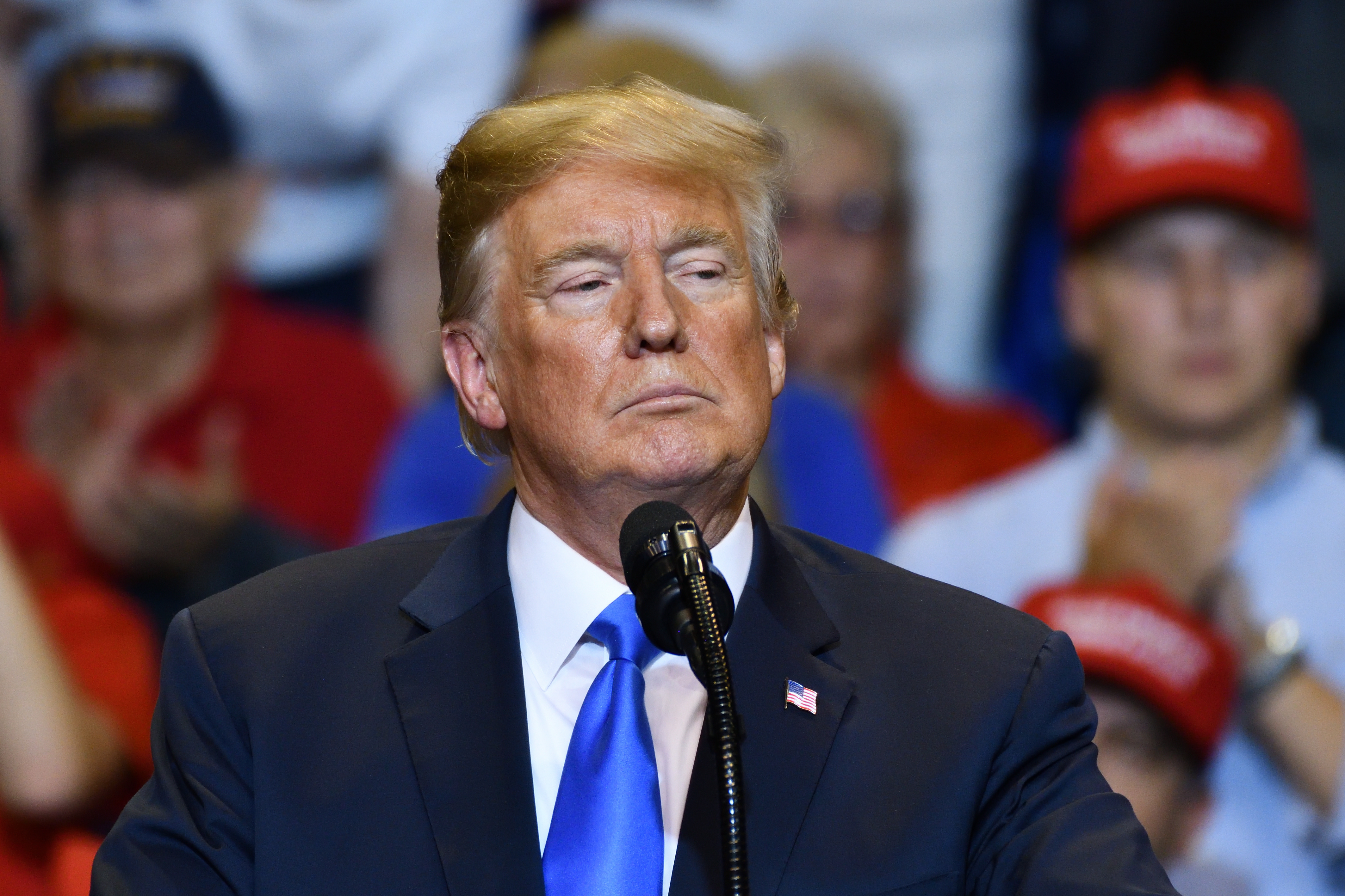

This is part of our special feature on Crime and Punishment.
Both President Donald Trump and European politicians are manipulating popular fears over migration to rally ultranationalist supporters and justify discriminatory policies towards migrants and refugees. Many of the displaced are fleeing violent conflict and have a well-founded fear of persecution. Compassion is in short supply. Instead of sanctuary, they are scorned and demonized.
Trump’s xenophobic rhetoric intensified leading up to the US mid-term elections on November 6, 2018. He targeted illegal immigrants, rallying his base while campaigning for Republican candidates. Trump wants a Republican majority in the US Congress to support his agenda, including funds for a border wall. According to Trump, “Walls work.”
The caravan of Central American immigrants headed to America’s southern border became a focal point for debate. Calling it “an assault on our country,” Trump characterized the caravan as a “mob,” which included “Middle Easterners.” In fact, the caravan comprised desperate people wanting a better life for themselves in the United States. Discriminatory policies towards migrants and refugees have been institutionalized and normalized by the Trump administration. Moreover, Trump politicized humanitarianism. “Democrats want to invite caravan after caravan of illegal immigrants to our country. Sign them up for free health care. Register them as democratic voters.” He threatened to deploy 5,200 US troops to block them at the border, thereby preventing them from seeking asylum. Kirstjen Nielsen, who serves as the United States Secretary of Homeland Security, raised the specter of violence: “We do not have any intention to shoot at people right now.”
According to DHS, “What we’re trying to do is make it a fair system, secure the borders, put Americans first and reform it in a way that keeps America safe.” In the past, asylum seekers and refugees were treated as two separate categories of people fleeing conflict and persecution. Under international law, countries are obligated to have a procedure in place for reviewing the applications of asylum seekers. Similarly, procedures for refugee resettlement are established by the US Refugee Act of 1980, which provides a permanent and systematic procedure for the admission to the US of refugees on humanitarian grounds, and provides provisions for the effective resettlement and absorption of those refugees who are admitted.
In 1980, President Ronald Reagan vowed to “continue America’s tradition as a land that welcomes peoples from other countries” and to “continue to share in the responsibility of welcoming and resettling those who flee oppression.” The need for care and compassion could not be greater. Sixty-nine million people are displaced by violent conflict today.
The Trump administration has excluded refugees and migrants through a series of executive orders and procedural moves. Stoking fears of terrorism, Trump promised “extreme vetting.” When he came into office, the US cap for refugee admissions was 110,000 persons. His first year, Trump reduced the cap to 50,000, before cutting it further to 45,000. The administration announced a further reduction of 30,000 for 2019. In practice, the numbers are even lower. Nine months after Trump became president, the US had resettled just 14,887 refugees. As of September, just 60 refugees from Syria had been allowed into the United States in 2018.
Secretary of State Mike Pompeo cited a backlog of 800,000 asylum seekers to justify the cutback in refugees. Under the guise of “law enforcement,” people are deterred from coming to the US. Since Trump came into office, there has been a sharp rise in the arrests of undocumented immigrants. Acting in violation of US law, US border officials regularly deny access to the US asylum process for migrants who express a fear of returning home or who request asylum.
As a result, it is nearly impossible for those who have no legal recourse in their home countries, who are fleeing domestic abuse or gang violence, to secure asylum in the United States or even to make an asylum claim and avoid expedited removal.
The Department of Justice has instituted a “zero tolerance” policy for illegal entry. It prosecutes 100 percent of these cases, including those of asylum-seekers. The US government notoriously separate children from their parents at the border.
The US has adopted other discriminatory administrative measures. The Trump administration eliminated the Central American Minors program, which allowed refugee children from El Salvador, Guatemala, and Honduras to enter the US to join their parents, who are in the country legally. It terminated temporary protected status for 200,000 El Salvadorans, 57,000 Hondurans, 50,000 Haitians, and smaller numbers of Nicaraguans, Sudanese, and Nepalese. It ended Deferred Enforced Departure (deferral of removal) for 4,000 Liberians who fled to the United States more than 20 years ago.
The US State Department moved to formally require all applicants for visas and legal residency in the US to submit five years of phone records and social media history.
Immigrations and Customs Enforcement (ICE) announced it would no longer release pregnant immigrants from detention, paving the way for more pregnant women to be held in lengthy custody awaiting immigration proceedings.
The Commerce Department will add a question inquiring about citizenship to the 2020 Census, a move that will lead to the undercounting of immigrant communities.
The Justice Department settled a lawsuit with West Palm Beach over sanctuary city policies, requiring local officials to cooperate more fully with federal immigration authorities.
Attorney General Jeff Sessions asserts he could single-handedly overrule requests by an immigrant to pause deportation, while the immigrant is pursuing legitimate claims to stay in the US.
The US Citizenship and Immigration Services has new rules tightening the ability of employers to secure high-skilled visas for foreign workers.
A similar phenomena occurred in Europe when more than one million people, mostly Syrians, took flight from Turkey in 2015. European Nationalist movements gained strength in response to populations flows. Some have taken office, others have become the main opposition voice, and they have successfully pushed centrist parties to the right.
The Balkan human corridor was a wave of human beings fleeing violent conflict, persecution, and poverty that stretched from Greece through Macedonia, Serbia, Croatia, Hungary, and Austria. Overwhelmed by the volume of human need, some countries sealed their borders in violation of international humanitarian law, which requires countries to provide a safe haven for the displaced.
Germany’s Chancellor Angela Merkel welcomed up to one million refugees and was initially praised for her humanitarian stance, but backlash occurred with some members of her government questioning Merkel’s approach. Interior Minister Horst Seehofer threatened to topple the CDU/CSU coalition and close German borders unilaterally. The far-right, anti-immigrant Alternative for Germany (AfD) gained support in the 2017 parliamentary elections and was seated in the Bundestag. Support for the CDU recently declined in local elections of Bavaria and Hesse.
The Freedom Party of Sebastian Kurz toppled the Christian Democrats and Kurz became Chancellor in Austria in 2017. He proposes banning head scarves for girls under ten in schools.
Italian voters backed the anti-EU Five Star Movement and the anti-Immigrant “Lega,” which joined forces to form a government. They announced plans for mass deportations of undocumented migrants.
In Hungary, Prime Minister Viktor Orban secured a landslide third term running on a platform giving Hungarians “the opportunity to defend themselves and to defend Hungary” against immigrant hordes.
Sweden welcomed more asylum seekers per capita than any other European country. In response, however, the anti-immigration Sweden Democrats gained 18 percent of the vote in the 2018 general election.
Britain’s decision to leave the EU, “Brexit,” was supported by nationalists worried that immigrants and Muslims would swamp the country.
Right wing parties are making gains in Denmark, Finland, France, Slovenia, and the Czech Republic. Their resurgence marks a trend. Populist authoritarians are rising on both sides of the Atlantic.
Maligning refugees and migrants is not only discriminatory. It creates a dangerous dynamic in society. As we have seen, hate speech gives rise to hate crimes. Demonizing the other legitimizes violent extremism, undermining principles of an open society and cultural diversity.
David L. Phillips is Director of the Program on Peace-building and Rights at Columbia University’s Institute for the Study of Human Rights.
Photo: President Donald Trump | Shutterstock
Published on November 8, 2018.




